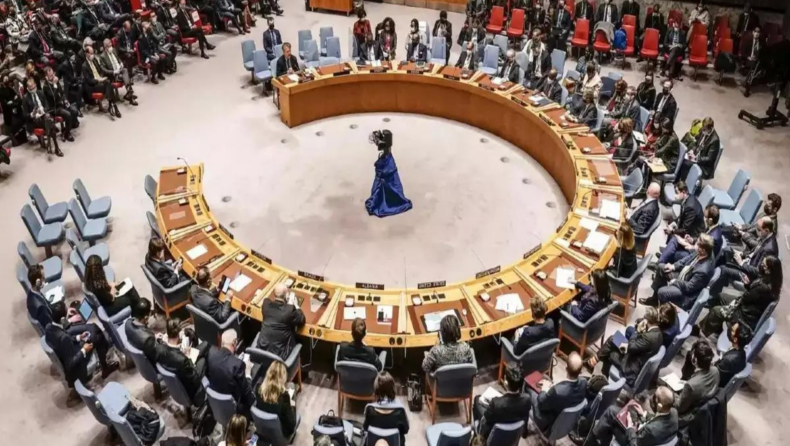On Wednesday, UNSC agreed to impose sanctions on Pakistan-based Jaish-e-Mohammed terrorist Abdul Rauf Azhar. However, only one nation, China, stood out by defending the terrorist and putting a hold on the proposal to impose sanctions on him.
The United States of America and India wanted Azhar to be labelled as an international terrorist. They also wanted him to be subjected to a global travel ban and the freezing of his assets.
In order for this proposal to be approved, all 15 nations that make up the UN Security Council would need to give their consent.
However, China, which is both a permanent member of the United Nations and a close ally of Pakistan, put a hold on the move in order to delay its implementation.
According to a spokesperson for China’s mission to the United Nations, the delay was made because China needed “more time to study the case.” This information was cited by Reuters.
According to the report, a spokesperson for the Chinese government was quoted as saying that “placing holds is provided for by the Committee guidelines,” and that there have been quite a number of similar holds placed by committee members on listing requests.
The United States accused Azhar of encouraging Pakistanis to engage in terrorist activities and organising suicide attacks in India.
The US government decided to impose sanctions on him in 2010. These sanctions have been in place since 2010.
He was accused of being involved in the planning and execution of a number of terrorist attacks, some of which included the hijacking of an Indian Airlines aircraft in Kandhar, Afghanistan, in 1999; the attack on the Indian Parliament in 2001; and the attack on the Indian air force base in Pathankot, India, in 2016.
Ruchira Kamboj, India’s Permanent Representative to the United Nations, made what appears to be a reference to China on Tuesday when she said that the practice of placing holds and blocks on listing requests of terrorists without giving any justification must come to an end.
These comments were made by Ruchira Kamboj, India’s Permanent Representative to the United Nations, during a debate on Tuesday before the United Nations Security Council about the dangers that terrorist acts pose to international peace and security.
In her words, “The fact that genuine and evidence-based listing proposals relating to some of the most notorious terrorists in the world are being put on hold is extremely regrettable.”
” The credibility of the Sanctions Regime has reached an all-time low as a result of the continued politicization of its implementation and the use of double standards. ”
On a number of occasions, China has put a hold on the United Nations Security Council Al-Qaeda and ISIL Sanctions Committee’s process of listing Pakistan-based terrorists.
At the beginning of the month of June, India lashed out at China for blocking the proposal to include terrorist Abdul Rehman Makki on the Sanctions Committee, also known as the United Nations Security Council 1267 Committee.
The Ambassador, Ms. Kamboj, stated that terrorism has been a problem in India for decades, and the country has become adept at combating this menace through the cultivation of resolve and firm determination.
She continued by saying, “We hope that the global community will stand united in addressing this threat to humanity with zero tolerance.”
Reuters was given the following statement by a spokesperson for the United States mission to the United Nations: “The United States respects the needs of other countries to verify that a sanctions proposal meets their domestic evidentiary threshold in order to justify a listing at the UN.”
“The United States values cooperation with our Security Council partners to effectively use this tool in an apolitical way to stop terrorists from exploiting the global order to commit their misdeeds,” the spokesperson added. “This is a tool that can effectively stop terrorists from exploiting the global order to carry out their misdeeds.”













